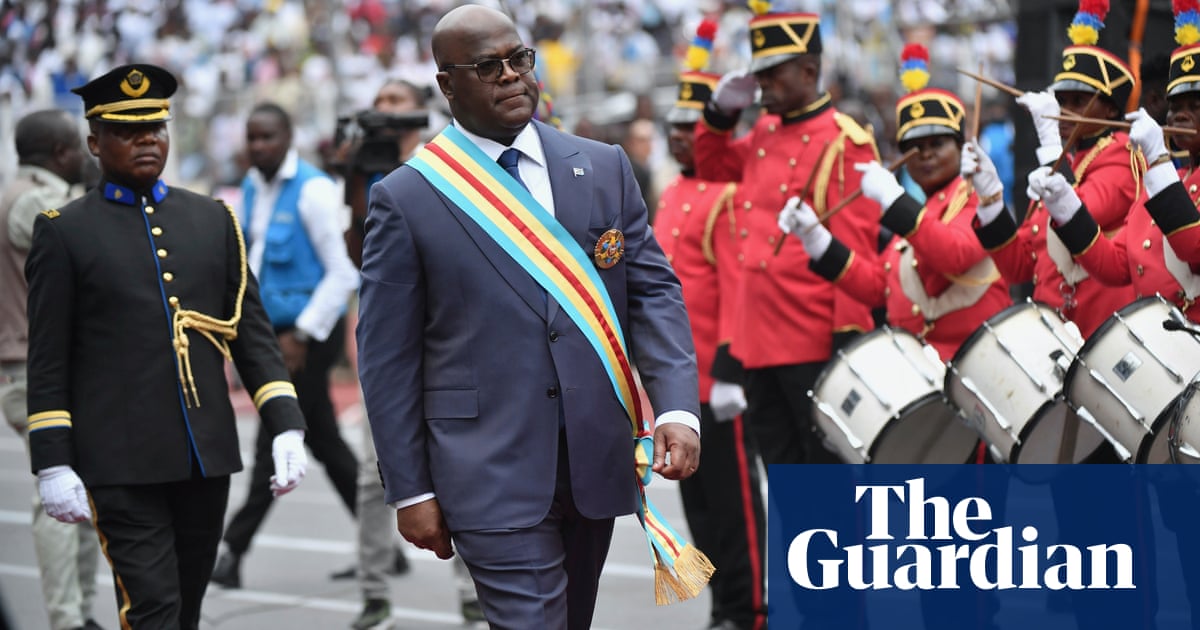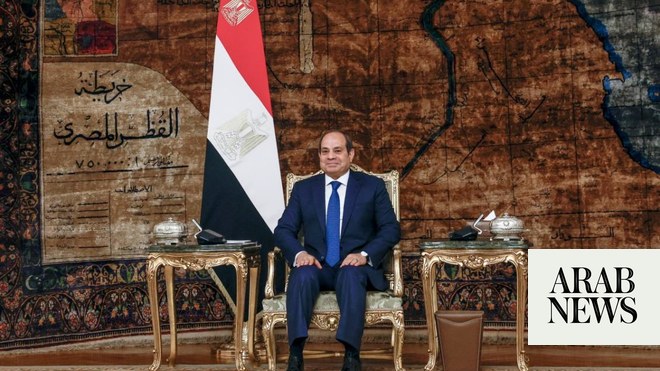
Egyptian President Adul Fattah al-Sisi was sworn in on Saturday for a second term, vowing to tackle the threat of terrorists and revive the country’s economy.
Sisi took the presidential oath before a packed parliament after winning 97 percent of valid votes in Marchs presidential election.
Egyptian air force fighter planes drew the Egyptian flag across the sky in red, white and black smoke, while helicopters buzzed over the former military chief’s motorcade as he approached parliament.
“I assure you that accepting the other and creating common spaces between us will be my biggest concern to achieve consensus, social peace and real political development in addition to our economic development,” Sisi said in a speech after he took the oath.
“I will not exclude anyone from this common space except those who chose violence, terrorism and extremist thought as a way to impose their will,” Sisi added during the ceremony, broadcast live on television.
"Together we face economic, social and political challenges and their negative effects on all aspects of life," he said.
Before addressing public officials and religious authorities, the president led a minutes silence for the Egyptians who had died for the country.
Egypt has been hit by a series of deadly terrorist attacks in recent years.
Extremists have killed hundreds of soldiers, policemen and civilians, mainly in the northern Sinai peninsula but also elsewhere in Egypt.
"Together we fought brutal terrorism that sought to undermine the unity of our homeland," he said.
Since February 9, the army has been conducting a vast military campaign to "cleanse" the country of terrorists. The fighting has so far killed at least 200 extremists and 35 soldiers, according to official figures.
Since taking office, Sisi has enacted a series of reforms aimed at stabilizing an economy hit by security threats and runaway inflation.
In November 2016, the IMF granted Egypt a $12 billion (10 billion euro) loan over three years, conditional on reforms including the adoption of a value-added tax, energy subsidy cuts and floating the pound.
And while GDP growth has increased in the past year from 4.2 percent to 5.2 percent, drastic cuts to state subsidies have proved highly unpopular.
In the next four years, the president is expected to continue pursuing major infrastructure projects including the construction of a new capital in the eastern desert.
Egyptian media has reported that Sisi will likely reshuffle his cabinet in the coming days.












